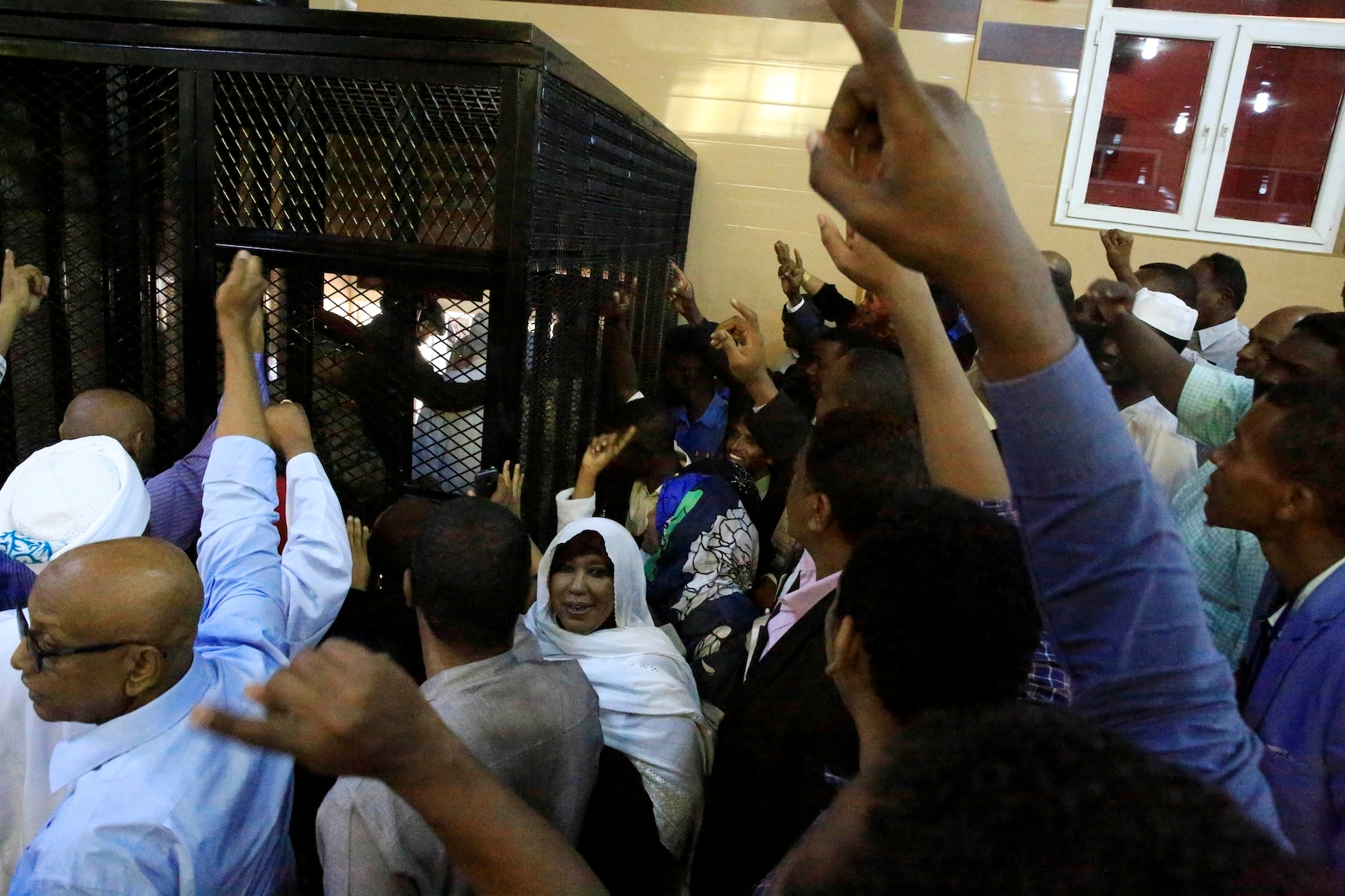In recent years, Africa’s primary multilateral organization, the African Union, has grappled with a resurgence of unconstitutional changes of government. A phenomenon common on the continent in the 1970s and 1980s has returned. Over the last five years, 10 military coup d’états have taken place in seven countries, namely Burkina Faso, Chad, Gabon, Guinea, Mali, Niger, Sudan.
Amid a continental and global response to address and prevent such events, the root causes are most often summarized as poor governance characterized by weak state institutions, disregard for the rule of law, poor service delivery and flawed elections. All these are markers of a defective democracy.
The re-emerging pattern is one in which constitutional and electoral amendments, deemed unlawful, create the backdrop for unconstitutional changes of government. Such amendments often call for a third term for incumbent presidents, or electoral reforms that concentrate power in the executive.
It’s important to interrogate the kind of relationships and linkages that exist between constitutional manipulations toward term extensions, which could be considered constitutional coups, and the proclivity of coups in Africa. The following countries, where constitutional amendments to extend incumbencies were followed by military takeovers, demonstrate the intricate linkage between the two.
Gabon
Before the recent coup in Gabon, the country witnessed major issues related to its constitutional and electoral democracy. A few days prior to the event, Gabon had undertaken a national election, which saw incumbent President Ali Bongo declared the winner. The removal of term limits and constitutional manipulations in the years prior had meant that the Bongo family remained in power for more than five decades.
On August 26, 2023, the country executed presidential, legislative and local elections managed by the Gabonese Election Centre. On August 29, the centre announced that Bongo had won a third term with 64.27 percent of the vote. Citing the threat of online disinformation, the Gabonese government had imposed a nationwide internet shutdown for several days before the election.
The ensuing communications blackout, initially meant to limit the coverage of impartial and independent information, subsequently and inadvertently facilitated the coup by high-ranking military officials. That action removed Bongo from power and ended a 56-year family dynasty. The Gabonese government refused both the African Union’s electoral observer mission and denied press accreditation to foreign reporters.
Prior to the coup and leading up to the elections, a mix of progressive and regressive electoral took place as a result of a national consultation that took place February 13–23. The consultations resulted in a review of the constitution, adopted in April 2023. Electoral reforms reintroduced the single-round voting for all political elections and lifted term limits imposed on re-elections for all political offices, meaning elected senior government officials could hold life tenures. Simultaneously, electoral reforms included the standardization of all political terms to five years, which was futile given that term limits had been scrapped.
Heading into the elections, Bongo’s legitimacy had been questioned. The former president was elected in 2009 after his father’s death and had served two consecutive seven-year terms as head of state. His election in 2016 was particularly controversial and resulted in violence and protests across Libreville, the seat of government, as the opposition pointed to voting irregularities.
Bongo had apparently won 95 percent of the votes in his home province of Haut-Ogooue, which critics described as a coup. Similar to the elections in 2023, the government shut down the internet for several days in 2016 to limit the mobilization of opposition groups and protesters. The rigging of the electoral process in 2016 and 2023, coupled with constitutional amendments to preserve an incumbent political elite, contributed to the military coup.
Guinea
President Alpha Condé’s tenure lasted a little more than a decade, following his election in December 2010. Condé had spent decades in opposition to a succession of regimes in Guinea. Upon assuming office, he vowed to strengthen the country’s democracy and fight corruption.
However, these ideals were short-lived. In March 2020, a few months ahead of the elections, a referendum was held to allow Condé to run for a third term, erasing the constitutional provision of two terms in office. The constitutional referendum, which had not been subject to public review or comment, allowed for an additional six-year presidential term.
The measure was ostensibly approved by 92 percent of voters. Widespread internet disruptions occurred the day of legislative elections and lasted until a day after the polls closed. The new amendments, which would not be applied retroactively, would have granted Condé the power to stay in office until 2032.
Civilians and opposition groups argued that this was a rigged referendum as 2.5 million unverifiable names were removed from the register by the electoral commission. The subsequent elections in October 2020 featured widespread protests in the lead-up to the vote, with cases of censorship, internet shutdowns, and the imposition of limits on press and online media freedom.
A coalition of main opposition parties, the National Front for the Defence of the Constitution and civil society organizations opposed the constitutional referendum process and boycotted the elections. Condé nevertheless won 59.5 percent of the vote in the October elections but was deposed in 2021 when special forces commander Mamady Doumbouya staged a coup.
During his swearing-in ceremony, Doumbouya said his mission would be to write a new constitution, tackle corruption, and reform the electoral system to allow for free, credible and transparent elections. In February 2024, ahead of elections slated for December to end its transitional period, Guinea’s military junta dissolved the government without proposing a new date for elections, extending its transition indefinitely.
Chad
Before his death in April 2021, President Mahamat Idriss Déby Itno had just won his sixth term in office as the head of the Patriotic Salvation Movement. Déby had extended his rule for more than 30 years by consolidating power through patronage, clamping down on dissent and imposing constitutional reforms. In 2018, Chad’s parliament approved a constitutional amendment reinstating a two-term office limit. However, it would not be applied retroactively, which meant that Déby could have stayed in power for a further two terms, depending on results of the 2021 and 2027 elections. The new constitution, at the time, was approved by 132 out of 134 members of parliament, the overwhelming majority pointing toward a likely subornation of parliament.
Among other regressive reforms, the constitutional changes eliminated the post of prime minister, creating a fully presidential system and nullifying the separation of powers. Critics called this an attempt to install a de facto monarchy.
Fast-forward to 2021, when Déby, heading the military transitional council after his father’s death, violated the constitutional provision that the head of the national assembly assumes the interim presidency while elections are arranged. This power grab instilled the younger Déby as de facto president. He now controls the transitional process, including any review of the constitutional and electoral process, which allows him to run for election in 2024.
Sudan
Prior to his ouster by the military following widespread protests in April 2019, president Omar Hassan al-Bashir had made clear his intention to run in elections originally scheduled for 2020. Al-Bashir himself had come to power through a military coup in June 1989, when he overthrew the democratically elected civilian government of former prime minister Sadiq al-Mahdi. In August 2018, after nearly three decades as Sudan’s head of state, al-Bashir’s National Congress Party (NCP), which he founded and headed, chose him as party candidate for the 2020 elections, despite a two-term limit stipulated in the 2005 constitution.
In December 2018, a couple of months before his ouster, al-Bashir compelled the national assembly to introduce a constitutional amendment that would abolish term limits. Earlier that year, the former president had dissolved the national unity government founded in 2017. The transitional government was created to resolve key concerns and challenges raised following the 2015 elections. Both the 2010 and 2015 elections were marred by voter intimidation and irregularities. In the latter election, al-Bashir was re-elected with 94.5 percent of the vote. Major opposition parties boycotted the elections, and the NCP’s closest competitor won a meagre 1.43 percent of the vote, signalling that a credible, free and fair election did not take place.
Al-Bashir’s systemic and structural weakening of institutions, the crackdown and intimidation of the opposition and civil society, and flagrant abuses of the spirit and letter of the Sudanese constitution were evident during the 2010 and 2015 elections. The government’s systemic censorship included restrictions on press and media freedom, including a list of topics that newspapers could not explore, prepublication censorship, confiscation of publications, legal action and denial of access to state advertising. In 2018, ahead of the intended 2020 elections, the Sudanese parliament approved a new Combatting Cybercrimes Act that carried a three-year prison sentence for spreading “fake news.”
At the start of the 2018 December protests that ultimately ousted al-Bashir, government authorities suspended services for social media platforms to disrupt communication among protesters. Ironically, the erosion of democratic norms and principles contributed to his removal from power in 2019 when the same paramilitary and state security forces he had buttressed, led by the leader of the Rapid Support Forces, General Mohamed Hamdan “Hemedti” Dagalo, turned on him. Although the military coup did not take place close to an election, as in the case of Gabon, the impunity of Sudanese authorities for decades created a fertile ground for a coup d’état.
Exploring the Linkage
There is a fundamental link between constitutional manipulation, coups and the erosion of citizens’ confidence in democratic norms. When leaders exploit constitutional loopholes to extend their tenure, they undermine the bedrock of democracy and rule of law, leaving citizens disheartened and disenchanted. The very essence of democracy, which hinges on the peaceful transfer of power, is disrupted, creating profound disillusionment.
Moreover, this manipulation often shatters the existing political consensus that governs power transfer. In healthy democracies, political power is exchanged peacefully through elections, fostering stability and a sense of fairness among political stakeholders. Respect for the constitution is sacrosanct. When leaders unilaterally tamper with constitutional term limits, this consensus is ruptured, engendering political polarization and discord. In many instances, these fissures lead to mounting tensions within countries, frequently resulting in violence by entrenched incumbents. The controversy provides the pretext within which the military, either claiming to protect the constitution or restore order, intervenes, as seen in the cases above.
Recommendations
There is an urgent need for national, regional and continental actors to accord constitutional manipulations the same level of concern as coups themselves. In most instances, these manipulations provide the contextual backdrop, in conjunction with other drivers, for coup makers to forcibly intervene in the political landscape. By recognizing the critical role that constitutional issues play in precipitating coups, policy makers can formulate more effective strategies for preventing unconstitutional changes of government.
This entails not only condemning coups in African countries but also proactively engaging with civil society groups, opposition groups and think tanks to monitor and safeguard democratic principles and uphold the rule of law. In doing so, multilateral institutions such as the United Nations and the African Union can contribute to greater political stability and prevent further coups on the African continent.



